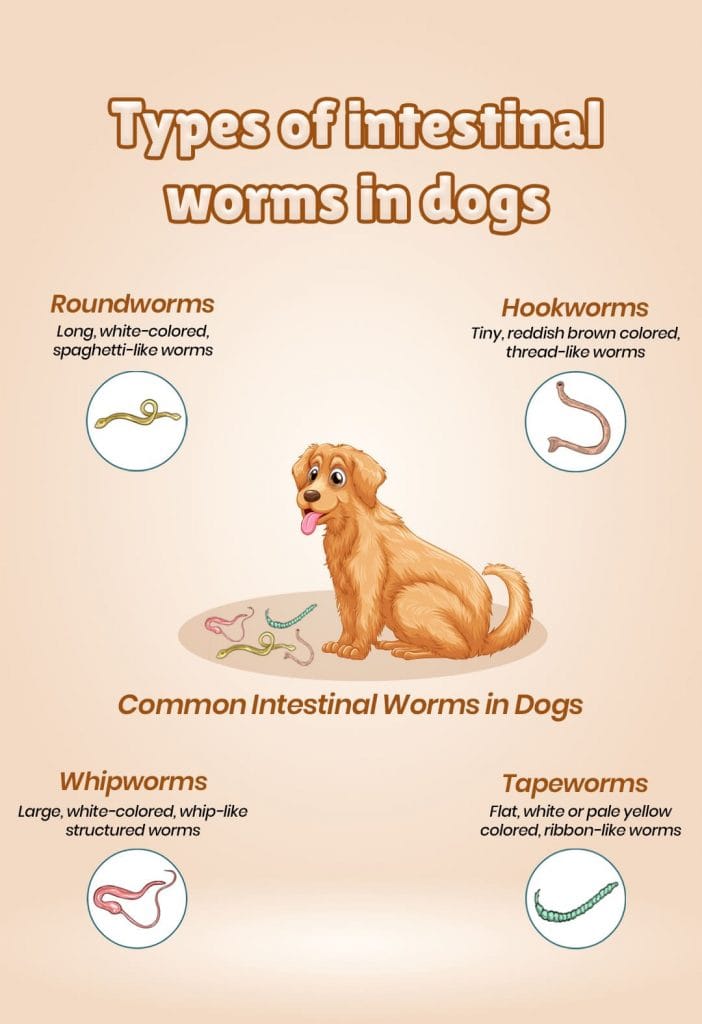As dedicated pet owners, we prioritize the health and well-being of our beloved feline and canine companions, often through regular deworming. However, this practice is not solely for our pets’ benefit; it’s crucial for minimizing the risk of parasitic transmission to humans. This guide delves into the common parasites that cats and dogs can harbor and outlines essential practices to safeguard both your pets and your family.
Understanding Common Pet Parasites and Their Transmission
Several types of intestinal worms can affect our pets, and understanding their life cycles is key to prevention. These parasites are not just a nuisance; they can cause significant health issues for both animals and humans if left unchecked.
Roundworms: A Pervasive Threat
Roundworms are a common concern, with a single adult worm capable of producing an astonishing number of eggs daily. This prolific reproduction means that contamination can spread quickly.
- From Puppies and Kittens: Young animals are particularly vulnerable. Puppies can be infected before birth (in utero), and both puppies and kittens can contract roundworms through their mother’s milk. Strict hygiene, including thorough handwashing after handling young animals and regular deworming, is vital to mitigate this risk. Puppies and kittens can be infected through their mother’s milk when suckling.
- From Pet Waste: The microscopic eggs of roundworms are shed in the feces of infected dogs and cats. Accidental ingestion by humans can lead to infection. Always handle pet waste with gloves and dispose of it properly. Daily cleaning of litter boxes and frequent removal of feces from yards and public spaces are essential for minimizing environmental contamination. Remember to always wash your hands thoroughly after cleaning up after your pet.
- From the Soil: Roundworm eggs are remarkably resilient and can persist in soil for years. This poses a risk to humans, especially children, who play in contaminated soil and fail to practice good hygiene. Pet fur can also pick up these eggs from the environment, particularly if your pet enjoys digging or rolling in the grass. Consequently, it’s important to wash your hands after petting your animal, even if they appear clean.
Tapeworms: Segmented Intruders
Tapeworms are intestinal parasites that exist in segmented forms. These segments, filled with eggs, detach and are expelled in the pet’s feces. Owners may notice small, rice-like segments around their pet’s hindquarters or in their stool, which is a key indicator of tapeworm infection.
- Infection in Pets: Dogs and cats typically contract tapeworms by ingesting infected fleas, often during grooming or while scavenging. Consuming raw meat or offal can also lead to infection. While generally not severe in pets, flea tapeworm infections can sometimes cause anal itching. Dogs and cats can become infected with tapeworms by swallowing infected fleas while hunting or scavenging, or when eating uncooked meat or offal.
- Human Infection: Humans, particularly children, can become infected with flea tapeworms by inadvertently swallowing an infected flea, often after petting an infested animal. Symptoms in humans can include gastrointestinal distress, such as vomiting and diarrhea.
- Hydatid Disease: A more serious concern is the hydatid tapeworm. Humans can contract this by ingesting hydatid tapeworm eggs from the environment. These eggs can travel from the intestinal tract to various organs, primarily the liver and lungs, where they develop into large, cyst-like structures. This condition, known as hydatid disease, is serious, potentially life-threatening, and challenging to treat. Regular deworming of dogs, preventing them from scavenging, and maintaining rigorous hygiene practices are paramount in preventing exposure to this parasite.
Hookworms: Burrowing Larvae
Hookworms infect pets through various means, including ingesting larvae from contaminated soil, larval penetration of the skin, or by consuming infected prey like rodents or birds. While adult pets may show few symptoms, hookworm infections can be severe in young animals, leading to diarrhea, lethargy, anemia, and in critical cases, even death. If hookworm larvae penetrate a pet’s skin, it can result in localized irritation and itching, often affecting the paws.
The larval stages of hookworms can also affect humans. Walking barefoot on contaminated ground can allow larvae to burrow into the skin, causing irritation and itching, a condition known as cutaneous larval migrans. Wearing shoes when outdoors can significantly reduce the risk of this type of infection. In some instances, hookworm larvae can migrate to the human intestinal tract, leading to severe abdominal pain.
Managing Worms and Protecting Your Family
Preventing and treating worm infections in pets is a multi-faceted approach that combines regular deworming with consistent hygiene.
- Deworming Regimens: A variety of deworming products are available for pets, such as MilbemaxTM. It is recommended to deworm adult pets at least every three months to effectively control intestinal worms and reduce the risk of human transmission. For certain parasites, like the hydatid tapeworm in dogs, monthly dosing may be advised. Puppies require more frequent deworming due to their heightened susceptibility. Always consult your veterinarian to establish an appropriate deworming schedule for your pet.
- Hygiene Practices: Alongside deworming, adopting stringent hygiene practices is essential. This includes regular handwashing after handling pets, cleaning up pet waste promptly and properly, and maintaining a clean living environment for your animals. Always consult your veterinarian to ensure your pet is on an appropriate deworming regimen. Appropriate hygiene practices are also essential in minimising the risk these parasites pose to humans.
By understanding the risks associated with common pet parasites and implementing consistent preventive measures, you can ensure a healthier and safer environment for both your cherished pets and your family. Always read and follow label directions for any medication.

